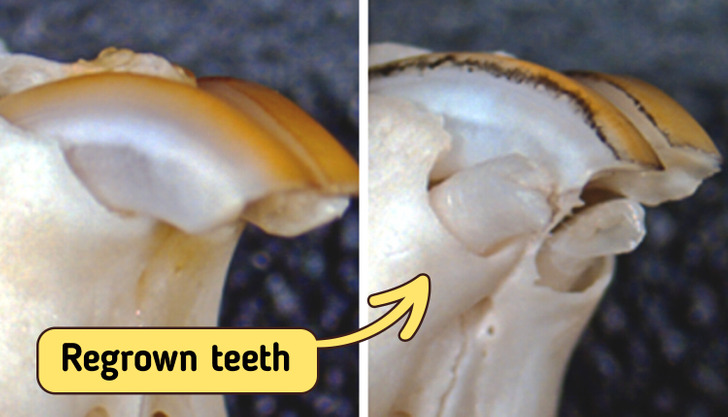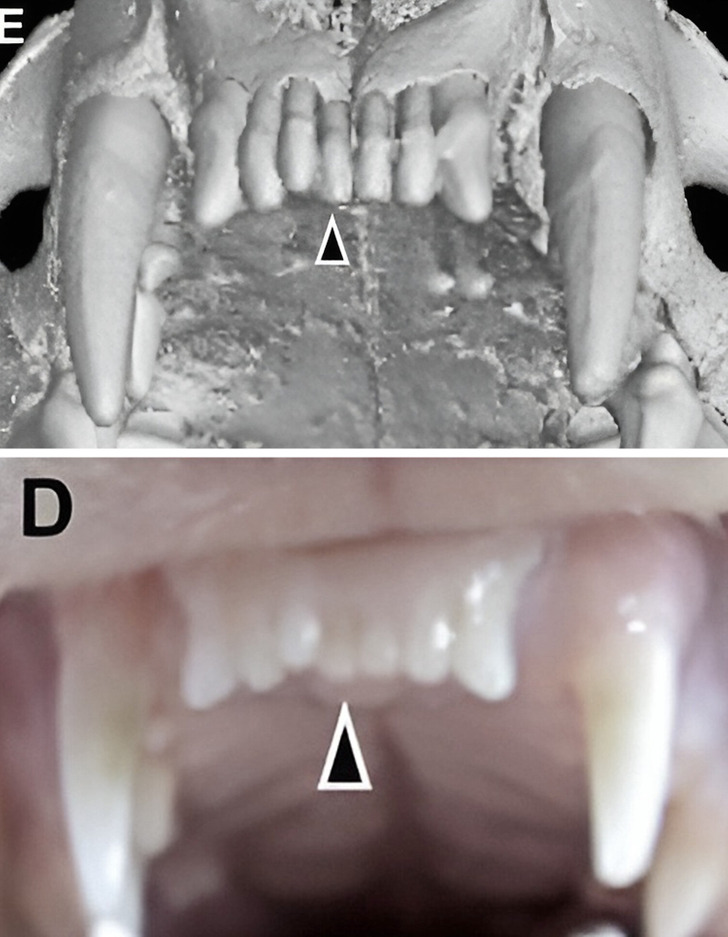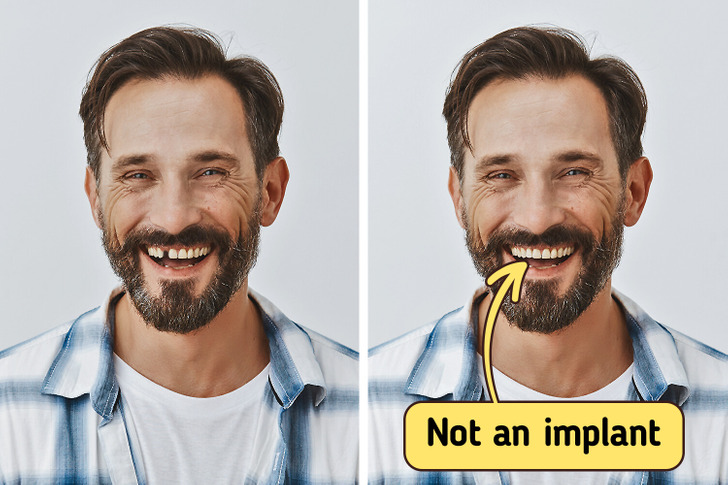The tooth fairy is a welcome guest for any child who has lost a tooth. Not only will the fairy leave a small gift under the child’s pillow, but they be assured of a replacement tooth in a few months. Unfortunately, the scenario is quite different for adults grappling with a loss of teeth. Luckily, there may be some hope thanks to a new study performed by scientists at Kyoto University and the University of Fukui.
A dental breakthrough
While the typical adult mouth houses 32 teeth, approximately 1% of the population exhibits variations of them, either possessing more or fewer teeth due to congenital conditions. Researchers have delved into the genetic factors behind cases of excessive teeth, seeking valuable insights into the potential regeneration of teeth in adults. This study is the first to show that monoclonal antibodies can help regrow teeth. It suggests a new way to treat a dental problem that currently requires implants and other artificial solutions.
A bit of science
The research team disclosed that an antibody targeting a specific gene, known as uterine sensitization-associated gene-1 (USAG-1), can induce tooth development in mice affected by tooth agenesis, a congenital condition. The findings were published in the journal, Science Advances.
As per Katsu Takahashi, a senior lecturer at the Kyoto University Graduate School of Medicine and one of the principal contributors to the study, the essential molecules crucial for the development of teeth have already been pinpointed. “The morphogenesis of individual teeth depends on the interactions of several molecules including BMP, or bone morphogenetic protein, and Wnt signaling,” says Takahashi.

On April 13, 2021, the University of Kyoto posted its first pic of newly-grown teeth in mice.
BMP and Wnt are involved in more than just tooth development; they affect the growth of organs and tissues early in the body’s development. Because drugs affecting them directly might have broad side effects, scientists are cautious. To find a potentially safer method, researchers focused on the gene USAG-1, thinking that aiming at factors countering BMP and Wnt specifically in tooth development could be more precise.
“We knew that suppressing USAG-1 benefits tooth growth. What we did not know was whether it would be enough,” added Takahashi.
The first results
Scientists looked at how different monoclonal antibodies affect USAG-1. Monoclonal antibodies are often used to treat things like cancer and arthritis and for making vaccines. Tests with this antibody showed that BMP signaling is crucial for deciding the number of teeth in mice. Also, just one treatment was enough to grow a whole tooth. Further tests confirmed these positive results in ferrets too.
“Ferrets are diphyodont animals with similar dental patterns to humans. Our next plan is to test the antibodies on other animals, such as pigs and dogs,” explained Takahashi.

Fully regrown frontal teeth in ferrets
The next steps

Now, scientists are going to test the drug on healthy adults. If that goes well, the team plans to try it on kids aged 2 to 6 with a rare tooth problem called anodontia, a genetic disorder defined as the absence of all teeth. These kids will get one shot of the drug to see if it makes their teeth grow. If everything works out, the medicine might be approved by 2030.
Takahashi sees the new medicine as an additional choice for individuals who are missing some or all of their teeth.
“The idea of growing new teeth is every dentist’s dream,” Takahashi told the Japanese newspaper, The Mainichi in June this year. “I’ve been working on this since I was a graduate student. I was confident I’d be able to make it happen.”
So hopefully, by the year 2030, humans will get a chance to have their third generation of teeth grown and say goodbye to implants. Until then, make sure to keep your teeth strong and healthy — this article will help you with that.
Preview photo credit KyotoU_News / Twitter
My Brother Makes Our Grandma Do Everything around the House — When I Saw Her Washing the Floors I Taught Him a Lesson

My Brother Makes Our Grandma Do Everything around the House — When I Saw Her Washing the Floors I Taught Him a Lesson
When Mike’s careless attitude toward his elderly grandmother reaches a boiling point, his sister devises a cunning plan to teach him a lesson. What starts as a simple party quickly unravels, exposing family tensions and leaving Mike humiliated in front of friends and family.
Hi! My name’s Mia, and here’s my story. My grandma moved into my brother’s house a few months ago after hers was sold. She needed money for medical bills, and living with him seemed like a great idea. She never complained about it, and I thought they were having a great time until I came to visit…

Mia cooks as her grandmother does the dishes | Source: Midjourney
During my first week there, I saw my grandma cook, clean, do laundry, and tend to the yard day after day. Not once did my brother lift a finger to help. Despite Granny’s back problems, he told her to do more and more with this bored, entitled tone.
“Granny, can you iron my shirts?” he would call out from the living room.
“Sure, dear,” she would reply, forcing a smile.

Grandmother mowes the lawn | Source: Midjourney
“Granny, the yard needs mowing,” he would say while playing video games.
“Of course, I’ll get to it,” she would answer, wincing as she stood up.
One afternoon, I found her mopping the floors. Her hands were red and dry, with knuckles sticking through pale skin. She moved slowly, pain evident in every step. That’s when I broke down and decided I couldn’t stay quiet any longer.

Mia confronts her grandma | Source: Midjourney
“Grandma, why are you doing all this?” I asked, my voice trembling with anger. “You should be resting!”
She looked up, tired eyes meeting mine. “He needs help, dear. He’s busy with work.”
“Busy?!” I exploded. “He’s playing video games all day! This is not fair!”
Grandma sighed. “I don’t mind. It’s just a little work.”

Mike plays video games | Source: Midjourney
But it wasn’t just a little work. It was too much for anyone, let alone an elderly woman with health issues. I knew I had to do something. I decided to organize a party, but not just any party. This would be a party with a twist.
The relationship between my brother and me had always been complicated. Growing up, Mike was the golden child, the one who could do no wrong.

Mike as a child | Source: Midjourney
He was a star athlete in high school, always surrounded by friends and admiration. I, on the other hand, was the quiet, bookish one. I didn’t mind staying out of the spotlight, but it did create a rift between us.
Our parents adored Mike and doted on him, often overlooking his flaws. They saw him as ambitious and driven, while I was seen as the responsible one.
I expected him to help out more around the house. This dynamic followed us into adulthood. When Grandma moved in, I hoped Mike would finally step up and take responsibility.

Mike laughs it off | Source: Midjourney
“Mike, can you at least help Grandma with the groceries?” I had asked one day when I called to check in.
He had laughed. “She’s fine, sis. She likes to stay busy.”
“She’s not a maid,” I had snapped back, frustration boiling over.
“Don’t be so dramatic,” he had replied dismissively.

The struggling grandma | Source: Midjourney
Seeing Grandma now, struggling and in pain, I felt a mix of anger and sadness. Mike had always been self-centered, but this was a new low. I couldn’t stand by and watch any longer.
One evening, I sat down with Grandma after dinner. “Granny, you need to rest. You can’t keep doing all this.”
She patted my hand. “I’ll be fine, sweetie. I’ve handled worse.”

Mia talks to her grandma | Source: Midjourney
“But you shouldn’t have to,” I insisted. “Mike needs to learn to help out. This isn’t fair to you.”
She sighed, looking weary. “He’s just used to it. He’s always been like this.”
I shook my head. “That doesn’t make it right.”
As I thought about what to do, an idea formed in my mind. It was bold, maybe even a bit risky, but I knew it had to be done. Mike needed a wake-up call, and I was just the person to give it to him. He couldn’t keep getting away with treating Grandma like this. It was time for a change.

Mia has an idea | Source: Midjourney
The plan started to take shape in my mind. I would organize a surprise for Mike, something that would make him see just how much work Grandma was doing. He needed to understand the weight of responsibility and the value of family. And I was determined to make sure he learned his lesson.
On her last day of staying there, I asked my brother Mike for a small party. He agreed, thinking it would be a good way to see old friends.
The party was planned for the evening before I left. Our high school friends, his football team, and even some nostalgic teachers were invited for a BBQ and a celebration.

Party invitation | Source: Midjourney
As the time when everyone was supposed to arrive approached, I got busy with my plan. I yanked all of Mike’s clothes into the laundry bin and dirtied them with ketchup and dirt. He wouldn’t have anything clean to wear.
Next, I put clean dishes in the sink and covered them with soap and ketchup. I made sure to mess up everything Grandma had been doing for him all this time.
Mike was lounging on the couch, oblivious. “Hey, sis, can you get me a beer?” he called out.

Mia dirties the dishes | Source: Midjourney
I rolled my eyes. “Sure, Mike,” I said sweetly. I handed him the beer, knowing chaos was about to unfold.
As the first guests started to arrive, Mike finally noticed the mess. “What the heck happened here?” he muttered, looking around the kitchen. “Grandma, did you forget to clean up?”
Grandma, who was resting in the living room, looked confused. “I’m sorry, dear. I must have missed it.”

Mike sees his dirty laundry | Source: Midjourney
Mike huffed and went to the laundry room. He opened the bin and saw his clothes stained and dirty. “Seriously?” he grumbled. “I have nothing to wear!”
He stormed back into the kitchen, where I was setting out snacks. “What’s going on, sis? Why is everything a mess?” he demanded.
I shrugged. “I don’t know, Mike. Maybe you should ask Grandma.”

Mike tries to tidy up his house | Source: Midjourney
He groaned and grabbed a dirty shirt from the bin, reluctantly putting it on. Guests started coming in, and Mike was running around in his stained clothes, trying to clean up.
“Ugh, my grandma was supposed to clean this already,” he muttered to his friend, Tom. “Because of her, I have nothing to wear!”
Tom raised an eyebrow. “Dude, you’re thirty. Are you serious?” he asked, laughing.

High school friends laughing at Mike | Source: Midjourney
Another friend, Jake, smirked. “Yeah, man. Do your own laundry. What’s wrong with you?”
Mike ignored them and kept trying to clean up. Grandma, despite her exhaustion, got up to help him. “I’m sorry, Mike. I can help now,” she said, grabbing a mop.
“You should have done this earlier, Grandma. Now everything’s ruined.”

Sad grandmother looks down | Source: Midjourney
The room fell silent as everyone watched the scene unfold. Mike’s angry speech echoed in the quiet house. “Why can’t you just do your job, Grandma?” he shouted.
People looked at him in disbelief. One of the old teachers, Mr. Parker, shook his head. “Mike, you should be ashamed. She’s your grandmother, not your maid.”
Mike’s face turned red. He looked around at the judgmental faces of his friends and family. Humiliated, he stomped upstairs and locked himself in his room.

Mad Mike | Source: Midjourney
I turned to Grandma, who looked upset. “Don’t worry, Grandma. Let’s enjoy the night,” I said, giving her a hug.
The guests slowly resumed their conversations, the awkwardness fading away. We enjoyed the BBQ, shared stories, and had a good time. Grandma finally relaxed and laughed with her old friends.

Family enjoying a barbecue | Source: Pexels
As the evening went on, I felt a sense of satisfaction. Mike needed to understand what Grandma had been going through. Hopefully, this would be a wake-up call for him to change his ways.
Grandma smiled at me. “Thank you, dear,” she said softly. “I hope he learns from this.”

Mia hugs her grandmother | Source: Midjourney
“I think he will,” I replied, looking up at the darkened window where Mike had retreated. “He has to.”



Leave a Reply